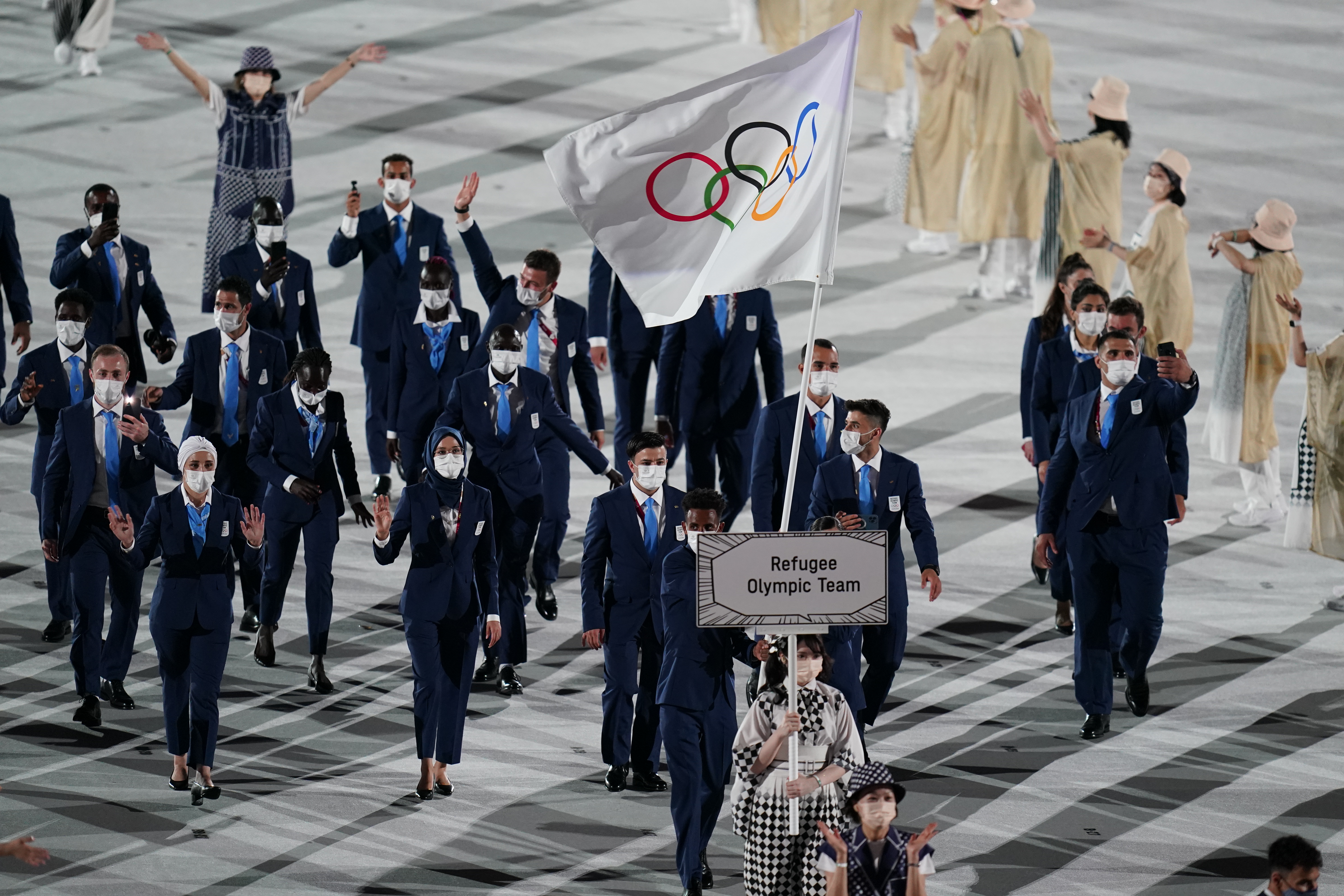Syrian wrestling star grapples with new challenge in Egypt
Amir Awad is no stranger to adversity. He entered his first wrestling tournament in his native Syria aged 11, and went on to grapple and fight his way to the top of his sport, eventually becoming a Syrian, Arab and pan-Asian champion.
After the outbreak of Syria’s conflict in 2011, however, he faced challenges of an altogether different kind. His pregnant wife, Enas, left their home in the Syrian city of Idlib in 2012 to stay with relatives in Egypt, while Amir and their young son Daniel remained behind.
But after a rocket struck their neighbourhood close to their home, he and his son left Syria and moved to Egypt as refugees. Living in his father-in-law’s house in Alexandria with his wife, son and newborn daughter, Amir worried about how to support his young family, and became obsessed with the idea of taking the sea route to Europe.
“My plan was to go to Europe, to get there and then bring my family. The idea was haunting me,” Amir said. “But when I imagined leaving my wife and children behind and being away from them, or taking them with me and putting them in danger, fear was much more powerful than my hunger [to leave].”
“As a champion, what I have to do now is to create future champions, to continue what I have done.”
Instead, Amir found a job as a cashier in a local restaurant, eventually becoming a chef. By coincidence, some of his Syrian colleagues were also sportsmen, and together they came up with the idea of creating a sports centre for Syrian refugees in Alexandria.
In 2015, after finding premises and organizing some sporting events, Amir and his friends approached UNHCR, the UN Refugee Agency, through its local NGO partner Caritas for support. UNHCR provided funds to equip the facility and offered training to Amir and his partners on managing the project.
“What UNHCR is trying to do with us is instead of giving us a fish every day, they taught us how to hunt,” he said. “They proposed that we train certain age groups for free for three months, and they supported us with funding while we built our name and attracted people.”
The centre now offers daily classes to both Syrian refugees and local Egyptians in wrestling, kickboxing, taekwondo, karate and gymnastics, as well as women’s Zumba dance and aerobics classes run by his wife, Enas, a former ballerina.
Amir hopes to continue wrestling at the highest level, and still dreams of one day competing at the Olympic Games. But thanks to the academy he now has another dream: to train future champions and use sport as a means to dissuade others from risking the dangerous sea journey to Europe.
“As a champion, what I have to do now is to create future champions, to continue what I have done,” he explained. “To show them that you do not have to be in Germany or Britain to succeed and for people to notice your skills.”
Additional reporting by Nora Ibrahim








